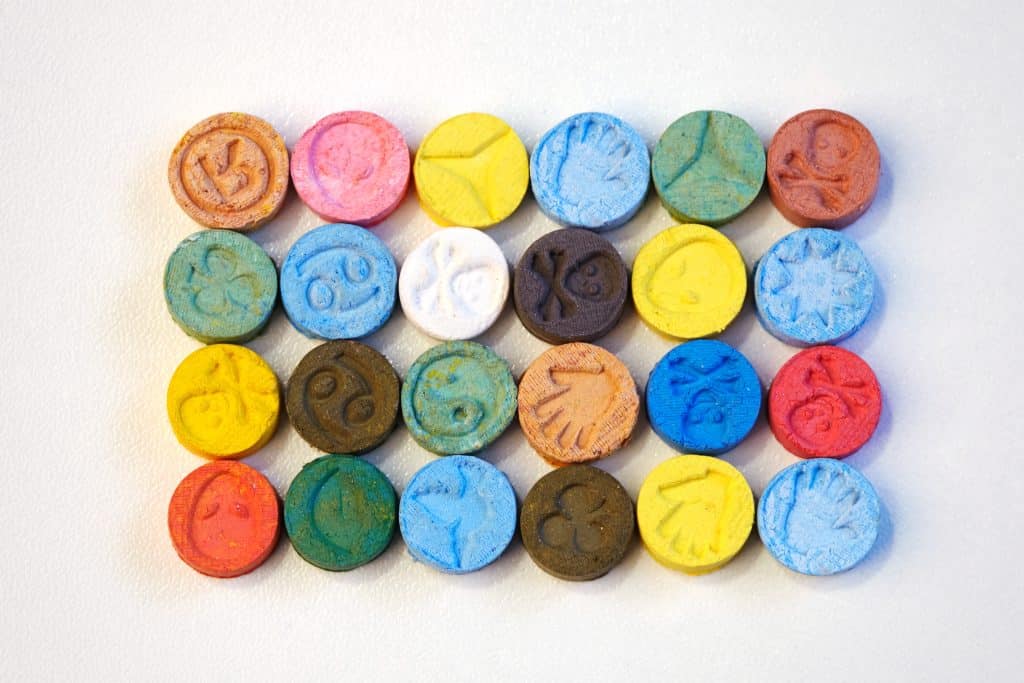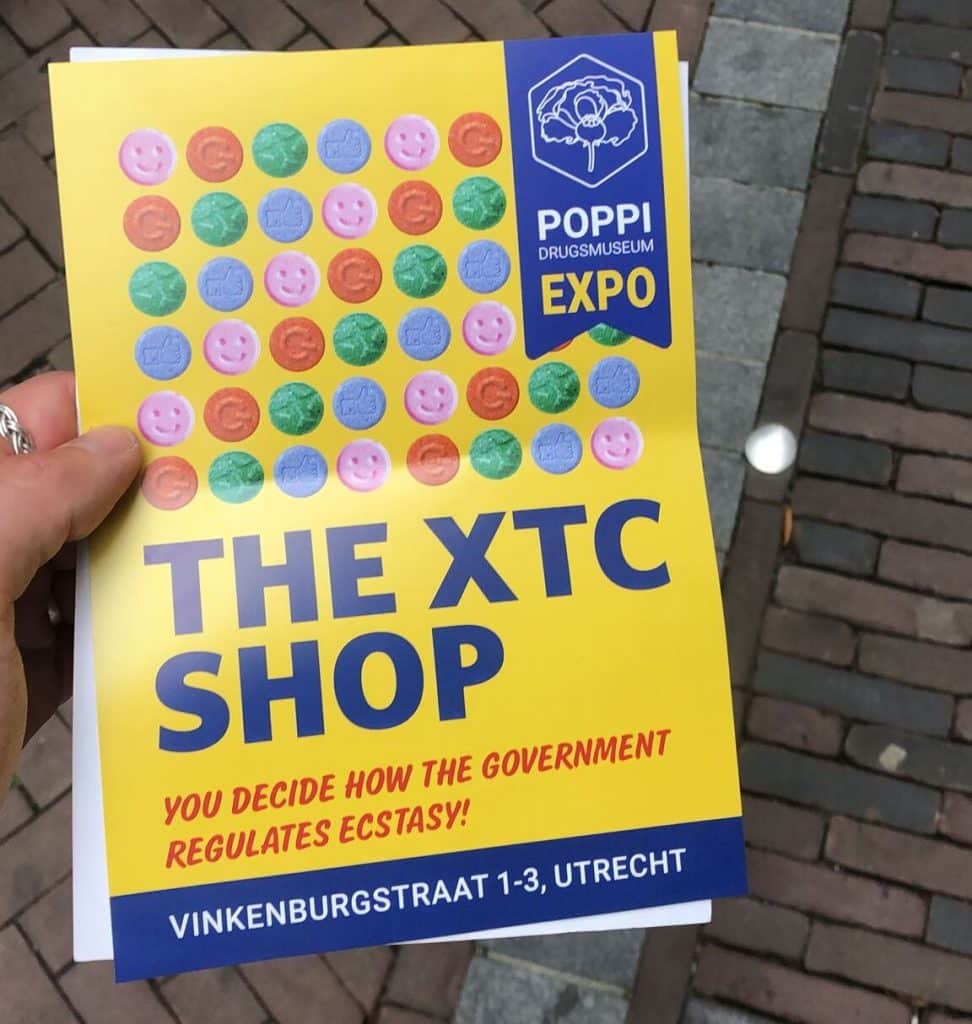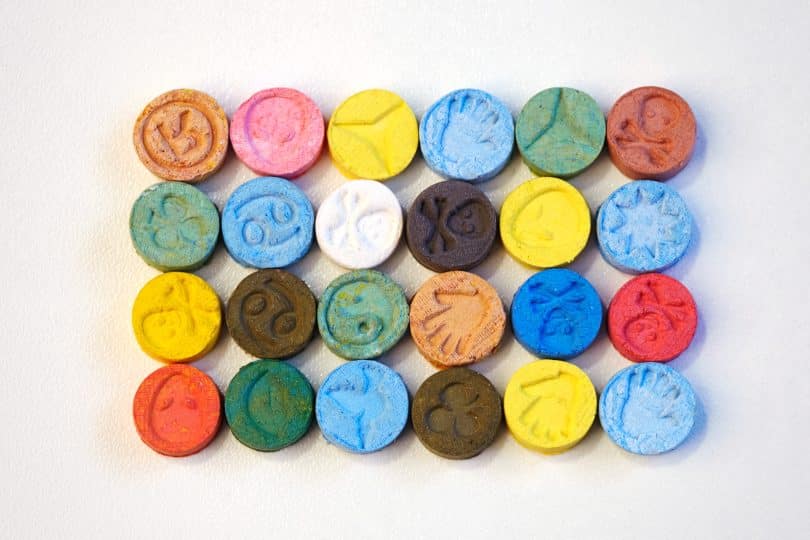The Netherlands is known to be far more liberal and accepting than the majority of nations in the world. Bicycles own the roads, cannabis and magic truffles can be legally bought at every street corner and they tax the wealthy. Not only that, they have a legal sex working industry – the red light district – which aims to bring safety and reduce crime. Of course, these decisions bring their own problems, such as thousands of ignorant tourists arriving every summer in search of their first joint and their first sexual experience. Tourists can seriously ruin the atmosphere of a place like Holland – much like many hotspots around the world.
Nonetheless, for those who have lived there or been down the not-so-visited streets will know that this country is one of the most beautiful and just in the world. But it seems Holland wants to take the next step towards drug legalization. In Utrecht, a small quaint city just a few miles from Amsterdam, a new shop has opened up. The first of its kind. A “ecstasy shop” or in other words, a shop that supposedly sells ecstasy… or does it?
To stay current on everything important happening in the industry, subscribe to The Cannadelics Weekly Newsletter. Also, it’ll get you premium access to deals on cannabis flowers, vapes, edibles, and much more! We’ve also got standout offers on cannabinoids, like HHC-O, Delta 8, Delta 9 THC, Delta-10 THC, THCO, THCV, THCP & HHC, which won’t kill your bank account. Head over to our “Best-of” lists to get these deals, and remember to enjoy responsibly!
The Netherlands
Holland or the Netherlands – or whatever you want to call it – sits in the North Western section of Europe, bordering Belgium, Germany and the North sea. Across the water, if you fancied swimming 21 miles, is the United Kingdom. Holland as a nation is incredibly flat, and is therefore known as the cycling country of the world. The entirety of the Netherlands is made up of a complex and useful set of cycling paths and cycling highways that can get you around the entire country. It wasn’t always like this, however. In the 50s and 60s, there was a chance that cyclists – like with many other nations – were about to be overtaken by cars. However, due to a large amount of activism and car-related deaths, it was decided that Holland would be designed to prioritise cyclists. About The Netherlands writes:
Cycling is very common in the Netherlands. On average, Dutch people cycle about 900km (about 559 miles) a year. Accumulated, this means that the whole Dutch population cycles over 15 billion kilometres a year!…in the Netherlands there are approximately 1,3 bikes per inhabitant. This means there are more bikes than people in the country… Protesters started to demand more space for cycling in order to make it safe. They got heard, which led to over 35.000km (21.748 miles) of bike lanes throughout the whole country.
Bikes aren’t the only part of the Netherlands that makes it special. In fact, the place as a whole is just unbelievably beautiful. The flat surface, the canals, the bridges, the cobbled streets, the tall buildings – every city in Holland seems like a fairytale location. Even when you walk down a some-what ‘residential’ street, the entire aesthetic of the country still makes it look like something out of a Brothers Grimm story. Due to the fact that so much water passes through Holland and they need to control and drain it, they have been forced to design a series of complex canal routes. Whilst efficient and essential, these also bring a charm and beauty to the country unlike any other. Holland writes:

For as long as they have been pumping water out of the lands in Holland, they have been building canals for travel, irrigation, and water removal… to keep our Dutch friends’ heads above water, and easily serve as additional streets for transportation… These days, not only are there canal buses that navigate the waterways, but restaurant boats, houseboats, and all manner of other boat types frequent these often semi-circular canals.
You could write forever about the spectacular aesthetic and atmosphere of the Netherlands, but ultimately one of the most interesting assets to the country is its liberal attitude towards drugs.
Drugs in Holland
It is often a misconception, invented by tourists, that Holland is like a sort of Drug version of Willy Wonka’s Chocolate Factory. Whilst it may seem that way – especially to Brits who come from a very backwards and conservative nation – actually there’s far more method to the madness than you may think. In the Netherlands, basically all drugs are illegal to possess, sell or produce. In fact, cannabis is also illegal, which might come as a shock to you. But don’t worry, no need to hide your stash if you’re walking the streets of Amsterdam, the drug is simply decriminalised for personal use. In Holland, substances are split into two categories, hard drugs and soft drugs. Hard drugs are the ones believed to be harmful and potentially fatal, and they include the likes of cocaine, ecstasy, heroin and GHB. Soft drugs are the ones believed to be less harmful, and these include some tranquillisers and cannabis. Sensi Seeds writes:
“All drug laws are based on the 1928 Opium Act, which says that possession of any drugs (list 1 or 2) is illegal. However, the Opium Act Directive also states that certain outlets where cannabis use occurs (known as coffeeshops), will be tolerated by the local authorities. This is called ‘gedoogbeleid’ – an official tolerance policy.”
This means that the Netherlands now has a booming decrimanlized cannabis market and was one of the first of its kind. There are over 160 coffeeshops in Amsterdam, and the country as a whole makes around 400 million euros a year on cannabis-related purchases. Magic truffles are also available to purchase in smartshops. These are the sclerotia of psilocybin mushrooms and are therefore not technically the same as them. In other words, truffles are basically embryonic, underground, versions of mushrooms. Plus, the high experience can be very much the same.
Ecstasy
Ecstasy is a tricky conversation topic in Holland. It is proven that the majority of the world’s ecstasy is produced in the Netherlands, which is quite the title considering how small and humble a nation it is. It was estimated that in 2017 around 1 billion E’s (ecstasy pills) were produced in Holland. This made those illegal producers around 18.9 billion euros. To put this in perspective, as a nation the Netherlands pay around 11 billion euros a year on defence. When it comes to price, an E can cost around 4-5 euros in the Netherlands, which is much cheaper than most places. Plus, with the booming market, it only costs around 40 cents for the producers to make a single one. But why has this been allowed to happen? Well, some have described the country as a narco-state, with members of the establishment working secretly with powerful drug lords in a mutually beneficial cohesion. But also, the country is an ideal location for drug smuggling. Not only because of its liberal drug laws, but also on its actual geographic position. Unheard writes:
“The Netherlands has long been a trading country — not just the harbours but also our high-quality internet environment. We have huge numbers of bankers and our country is central in Europe in terms of all kinds of transport and transit… We have huge numbers of imports, which means a lot of drugs are mixed with legal trade, coming in containers of fruit or liquor. Organised crime takes advantage of the legal infrastructure.”
With a booming illegal ecstacy market happening with or without their consent, the Netherlands are now considering creating XTC shops. In Utrecht, a student city a few miles away from Amsterdam, the first of its kind has opened up.
The Ecstasy Shop in Utrecht
The shop is called ‘De XTC Winkel’ and, disclaimer, it does not actually sell Ecstasy. I know, it’s a bit of a disappointment. Actually, this new enterprise stands as a simulation and exhibition of what it would be like if the Netherlands began allowing shops like this to exist. The shop is open from the 15th July until the 29th September and is acting as an experiment. The exhibition asks the customer themselves what they believe to be the best way to go about with selling ecstacy. Everyone is fully aware of how much ecstasy is produced and sold in the Netherlands, and it doesn’t seem to be going away, so this would be an alternative and perhaps safer method of retail. Utrecht University News writes:

“Imagine: the government regulates xtc. What would retail look like? Should you be able to buy pills everywhere, or only on prescription? In the xtc store, a public experiment of the Drug Museum Poppi in collaboration with Utrecht University researchers, visitors decide.”
The museum takes you through three strands – a pharmacy, a speciality store and a party – asking you which you think would be best to purchase ecstasy from. It’s 10 euros for adults and 8 euros for students – which isn’t too far off the price of an E. In 2019, many locals, scientists and experts got together to discuss the future of ecstasy regulation. Poppi, the company in charge of the shop, writes:
“In 2020, they concluded that the regulated production and sale of ecstasy would have the best outcomes on health, public safety and the environment…Both the city councils of Amsterdam and Utrecht argue in their 2022 coalition agreement for a better balance between repression and regulation of drugs. Amsterdam even wants a pilot with regulated ecstasy.”
Final Thoughts
As you can see, the Netherlands is yet again aiming to find a moral and efficient way of dealing with their own drug issues. Rather than ignore it and implement the desperately unhelpful ‘war on drug’ methods, they instead want to use it to their advantage. If you can’t stop people taking drugs, why not create a safe and public way of doing it. It wouldn’t be a surprise if, in a few years, ecstasy was available to be bought in special stores around Holland.
Do you think this is a good idea or has the Netherlands gone too far this time? Drop us a line in the comment section below and let us know what you think!
Hello readers! We appreciate you joining us at Cannadelics.com, a top choice news platform for independent coverage of the growing cannabis and psychedelics landscapes of today. Come by the site whenever possible for updates on current and world-changing events, and head over to the Cannadelics Weekly Newsletter, so you’re always up on what’s going down.









